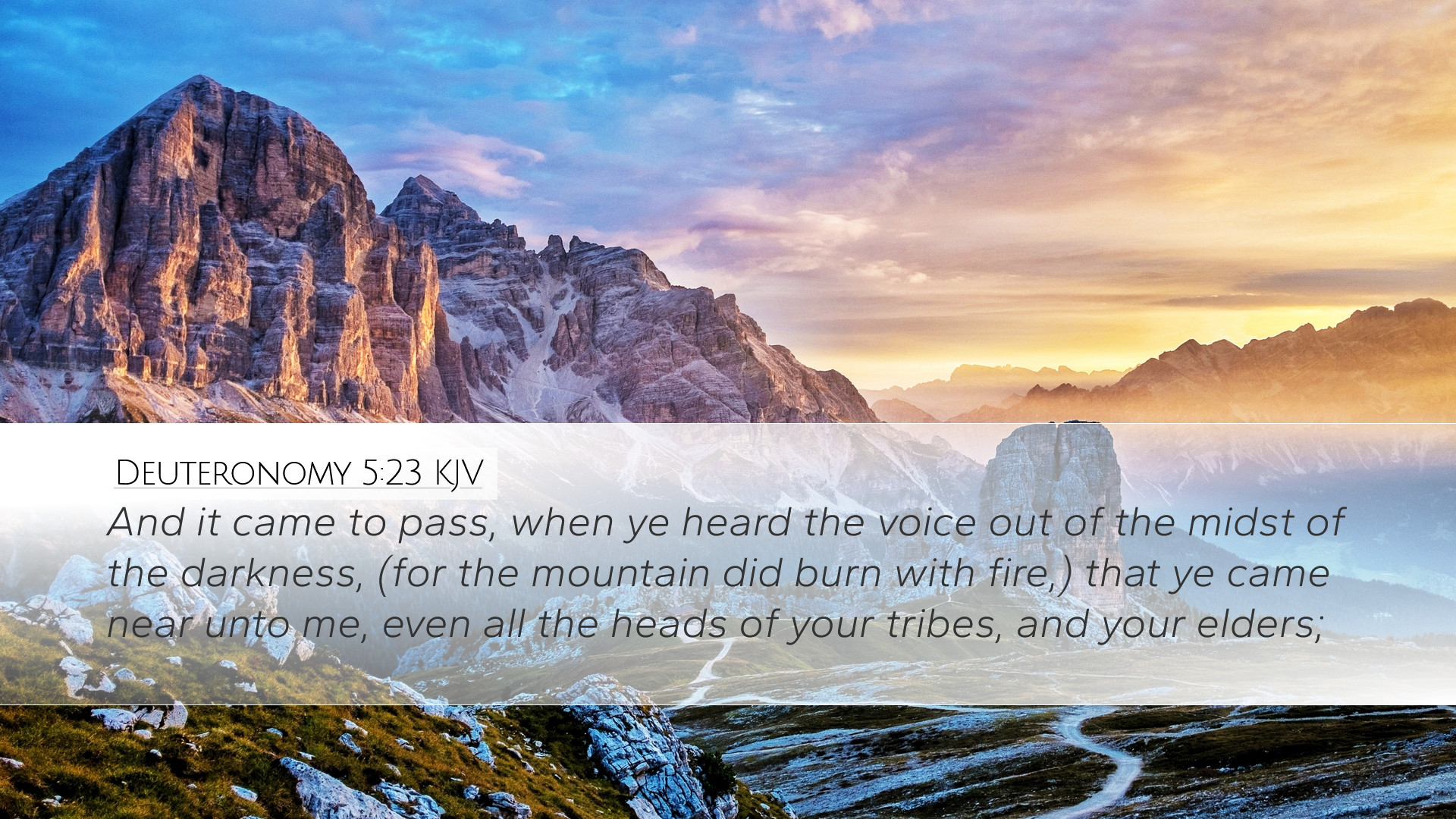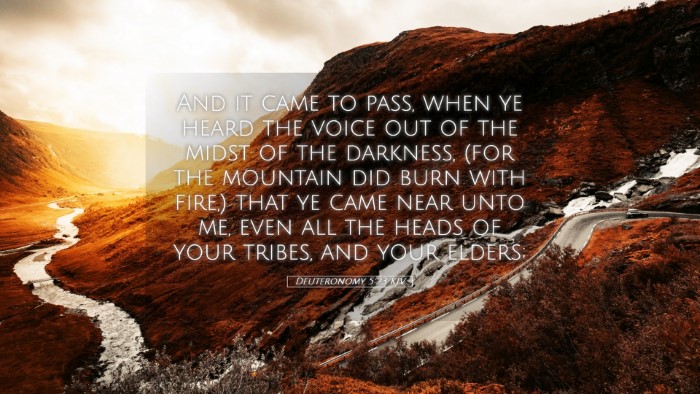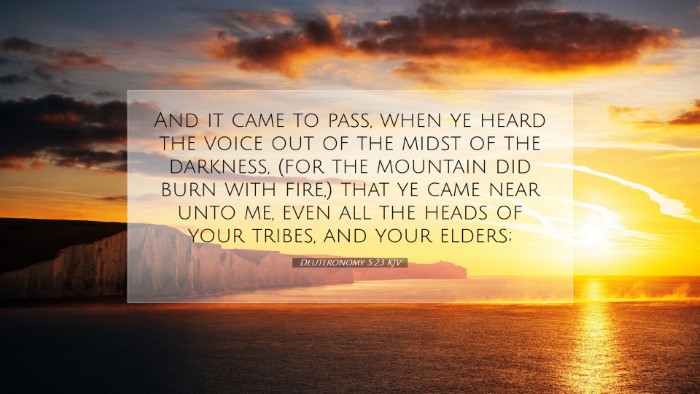Commentary on Deuteronomy 5:23
Bible Verse: Deuteronomy 5:23 - "And it came to pass, when ye heard the voice out of the midst of the darkness, for the mountain did burn with fire, that ye came near unto me, even all the heads of your tribes, and your elders."
Contextual Overview
The verse is located within a larger narrative concerning the giving of the Ten Commandments to the Israelites at Mount Horeb (Sinai). This event was marked by divine manifestations, including thick darkness and fire, demonstrating God's majesty and holiness. The Israelites' response and the gravity of their encounter with God are pivotal themes in this text.
Insights from Commentators
1. Matthew Henry's Commentary
Matthew Henry emphasizes the importance of the Israelites’ encounter with God as a precursor to receiving the law. He underscores the terror and reverence that the people felt, evident in their approach to Moses. Henry notes that their fear was appropriate, reflecting an awareness of God's holiness and their own unworthiness.
Key Points:
- Awareness of God’s Glory: The display of darkness and fire symbolizes God's overwhelming presence, suggesting that His glory can be intimidating.
- Human Response: Fear led them to seek guidance from Moses, illustrating the role of mediators in approaching God.
- Preparation for Revelation: The event served to ready the people for the law that was to follow, highlighting the importance of understanding God's holiness before engaging with His commandments.
2. Albert Barnes' Notes
Barnes provides a detailed analysis of the specific elements within the verse, focusing on the collective response of the leaders and the people. He interprets the "voice out of the midst of the darkness" as a profound element of God's revelation that left no one indifferent.
Highlights from Barnes:
- The Nature of Divine Communication: Barnes suggests that God’s voice emerging from darkness signifies that His ways are often mysterious and not immediately comprehensible.
- Collective Reaction: The assembly of leaders highlights communal identity and collective fear, pointing to the broader implications for Israel as a nation chosen by God.
- Significance of Fire: The mountain burning with fire symbolizes purification and the seriousness of God's covenantal relationship with His people.
3. Adam Clarke’s Commentary
Adam Clarke elaborates on the profound nature of the people’s encounter with God. He illustrates how the awe-inspiring moment brought a deep conviction of sin among the Israelites, leading them to clamor for a mediator.
Clarke's Observations:
- The Role of Mediators: Clarke emphasizes the necessity of Moses as a mediator for the people, as they felt unworthy to approach God directly, showcasing a fundamental theological point about intercession.
- Contrast with Idolatry: The fear that led them to seek Moses stands in stark contrast to the later inclinations of Israel towards idolatry, serving as a poignant reminder of their covenant obligations.
- The Use of Darkness: The darkness enveloping the mountain can be interpreted as a metaphor for the spiritual blindness of humankind, highlighting the need for divine revelation.
Theological Implications
Deuteronomy 5:23 evokes significant theological reflections that remain relevant for both contemporary and historical contexts:
- God's Holiness: The verse reiterates the essential attribute of God's holiness, prompting reverence and fear, which is foundational in understanding the covenant relationship.
- Need for Mediators: The biblical principle of mediation is established here, foreshadowing Christ as the ultimate mediator between God and humanity.
- Community Response: The collective action of the leaders represents the importance of community in spiritual matters, urging contemporary communities to seek God together.
Conclusion
Deuteronomy 5:23 encapsulates a pivotal moment in Israel's history where they encountered the divine in a powerful and terrifying manner. Through the insights of Henry, Barnes, and Clarke, we appreciate the multifaceted implications of this scripture. It guides us in understanding the gravity of God's law, the necessity of mediation, and the communal nature of faith. As pastors, students, and scholars reflect on this verse, may it foster a deeper reverence for God’s commands and a commitment to uphold His holiness in community worship and individual conduct.


